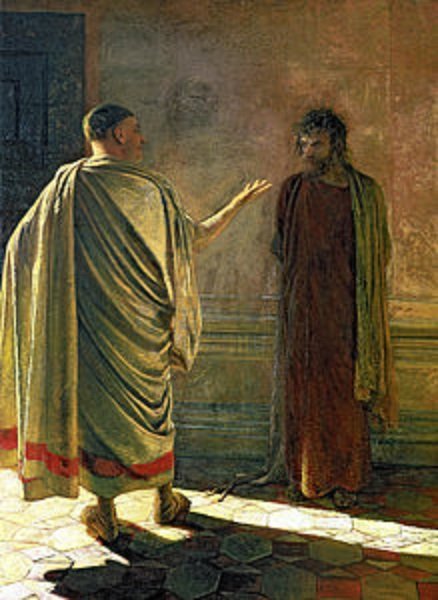The Problem of the Christian Philosophy. The place of philosophy in christianity /part 6 /
The philosophy itself, in the form in which it is found in the conditions of its existence, is a very special existence in which Christianity has introduced the thinking subject, and for his reason some of the objects are prominent and some of his affirmations are introduced with overriding images; that in other circumstances this will not happen. It is this internal qualitative assessment that allows us to separate and define the distinctive features of a group of scholars. Adding to this, Mr. Wilson's statement that two things remain different, even though they combine them with an inner link.

This relationship is not accidental, it stems from the very nature of philosophy, its natural aspiration to as much as possible knowledge of its own objects, the very nature of Christian doctrine, and the Christian life, of this external and inner emotion that is communicated to reason . As far as tomism is concerned, on the one hand, it should be said that the philosophy of Tom is a philosophy because it is rational, not because it is Christian. On the other hand, if it comes to the point not of formal causality, but of historical development, it must be noted that the philosophy of the Gothic philosophy must be recognized as a true philosophy of power not so much of the stated considerations, but also of the help of the the one who follows Eudeman ethics not so much on reason, but better than reason. Anyway, in our philosophy, it is important not that it is Christian, but that it is true. She turns to reason, and as true as she is, she is more faithful to her own nature and connected with her. Therefore, despite some who are indignant on this occasion, we find it particularly potent of the fact that Thomas Aquinas has received his philosophical weapon from the most serious thinker of pagan antiquity.
Sold, it goes without saying that philosophies can be Christian, and to a greater or less extent deviate from the nature of philosophy and then turn to the particular Christian philosophy less frequently than in the period of its decline or decay, an example could serve this time when universities dominated the doctrine of Occam. In this way, we are approaching the need to distinguish what could be called an organic Christian regime with which the human intellect is familiar at the best moment of medieval civilization and the collapsing Christian regime with which he had interaction in the subsequent times. Honestly, Western philosophy has never been liberated from Christianity. It is in this sense that N.Berdayev said that all modern great philosophers are "Christian" philosophers. Let us not forget that in order to have a panorama of the movement of Christian thought in all its fullness, we should not only look at philosophy, but with it theology and contemplative wisdom. As a result of the disintegration of Christian synthesis, philosophy inherited various tasks, interests, and cares, which previously related to two other spheres of wisdom. Establishing itself internally less Christian, it is filled with fragments of Christianity. And then that paradox is clear that the philosophy of Descartes or even of Hegel turns out to be a greater bearer of Christianity and has a less philosophical look than the formally next Aristotle.
Unfortunately, some Christians adopt an attitude "that their faith is indefensible, they try to evade the whole problem by saying that what they believe goes beyond reason"
To listen to the audio version of this article click on the play image.

Brought to you by @tts. If you find it useful please consider upvoting this reply.